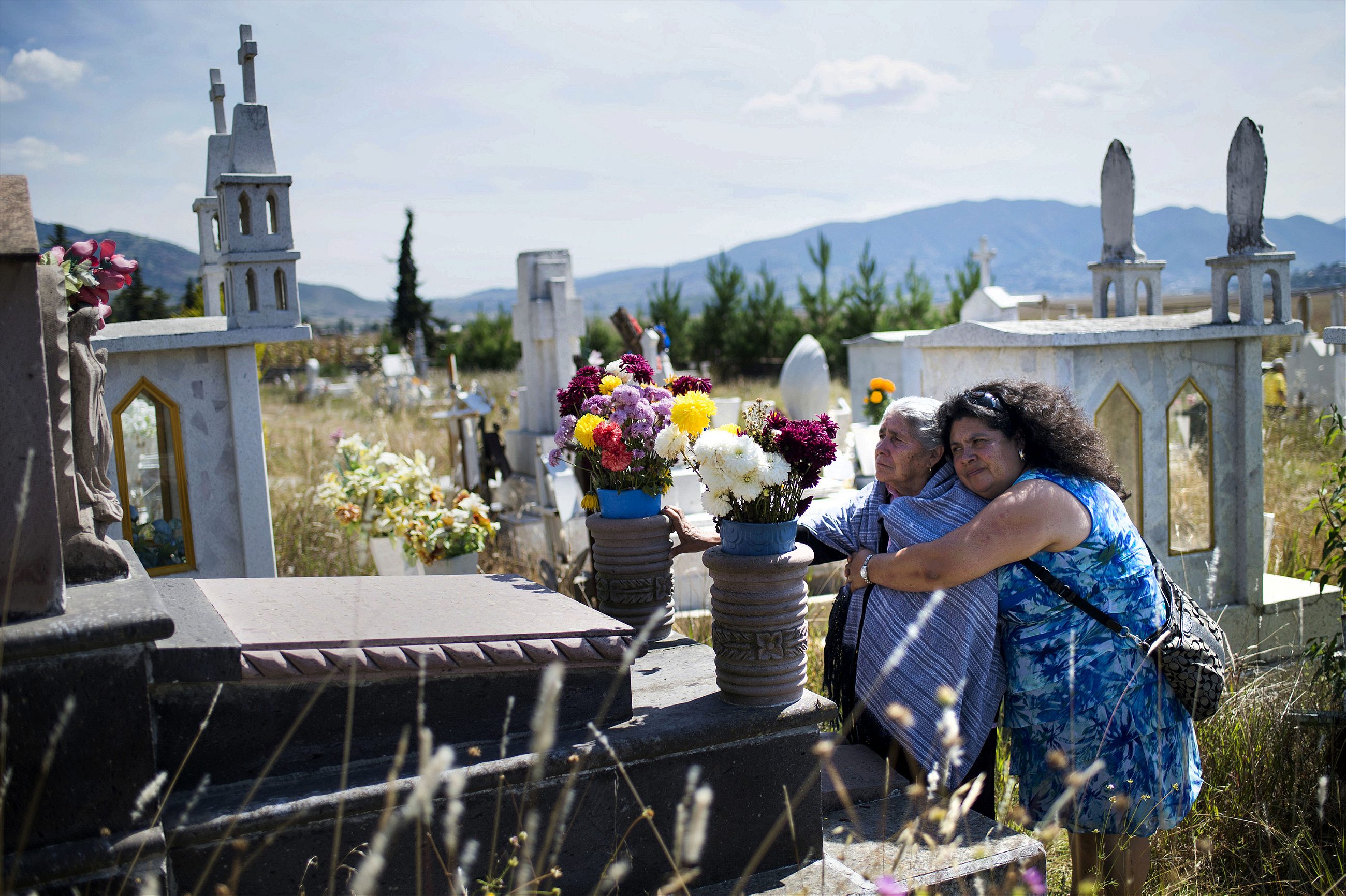Michigan-based photographer Rachel Woolf documents a mother’s deportation—and her family’s struggle to adjust to a new life in Mexico.
After living in Ann Arbor for 20 years, Lourdes Salazar Bautista lost her immigration court battle last year. She was going to be deported to Mexico. Michigan-based photographer Rachel Woolf heard about Bautista’s case following the outrage in the local community and reached out to her while she was in the process of packing up.
A few days later, Bautista and two of her three U.S.-born children flew to Mexico, where she was reunited with her husband, Luis Quintana Chaparro, who had been deported seven years ago. Woolf followed the family throughout their journey from Michigan back to Mexico, and her documentation of the Quintana-Salazar family recently won the Emerging Lens Mentorship Program from Art Works Projects in Chicago, where her work will be featured in an exhibition this August.
Woolf spoke to R&K from Detroit about her project.
Roads & Kingdoms: Was this the first time you worked on an immigration-related story?
Rachel Woolf: I recognize that I’m not maybe the best person to tell immigration-related stories. I don’t have any personal experience with immigration in my family, but it was just something I knew I wanted to work on after I met the Quintana-Salazar family. I’m going to stay with them as long as they’ll have me—and want me to tell their story. They’re incredibly open and kind, so I want to make sure that I document them with dignity to show that deportation is complicated and it’s not such a black and white issue.
Call center jobs are providing hope for Guatemalans deported from the U.S.
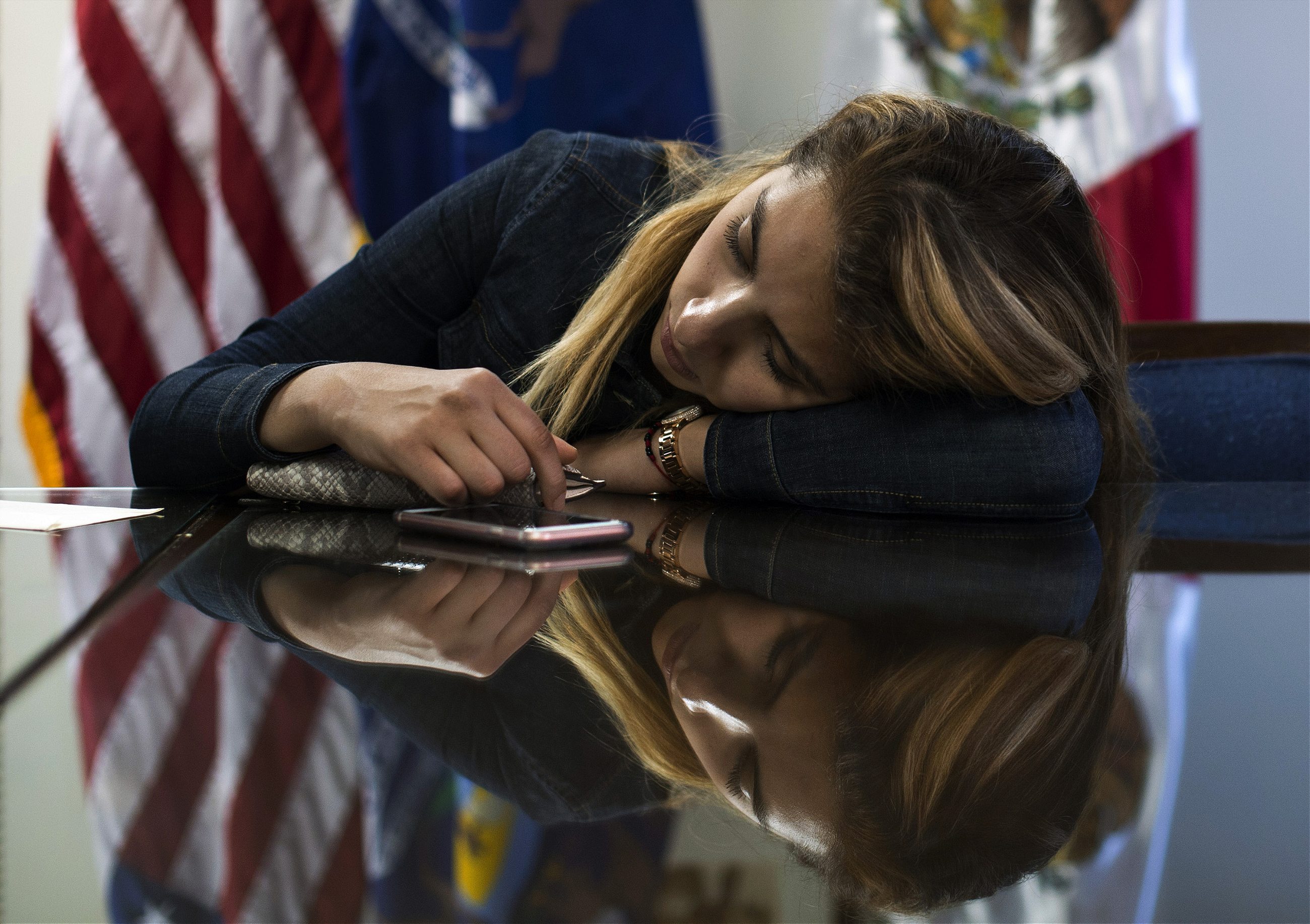
R&K: How so?
RW: Now that the family is back in Mexico, they are, in some ways, reconnected. Bautista hasn’t seen her husband in seven years, and now they are together again. At the same time, she’s back in a country that she doesn’t want to be in. There are so many different intertwining stories and intertwining issues and situations in this family, and the issue of deportation itself.
How fear and despair in Honduras fuel an unwelcome exodus to the U.S.
R&K: What has been the most important thing you’ve learned working on this story?
RW: I learned a lot about the immigration process directly. This issue of deportation isn’t something new. People have been getting deported for a long time. I tried to learn as much as possible about what deportation looks like on a global scale, so I can show it in my photographs and do this family justice. I’m looking beyond the surface and not just telling their story at face value.
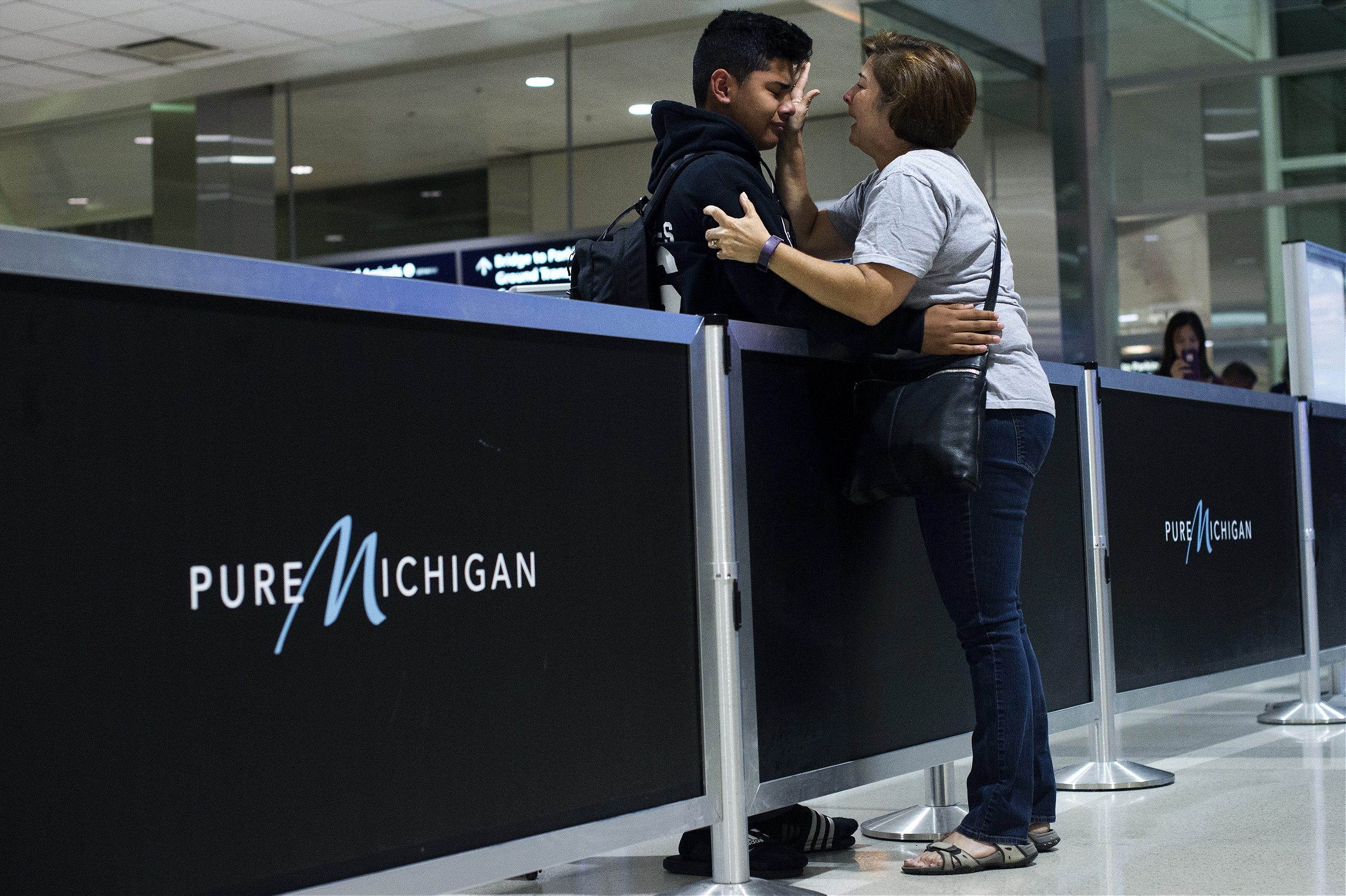
R&K: One of your images captures a poignant moment at the airport. Can you describe how that came about?
RW: It was the morning Bautista was deported. She took her two teenage children—Bryan, 13, and Lourdes “Lulys,” 15—with her to Mexico because she didn’t want them to grow up without her. Pamela, her eldest daughter, stayed back in the U.S.
There were a lot of officials there, but there were also people from the community standing with signs to show their support. She was moving through the airport with an entourage of people that had known her over the years. After she met with the ICE officials, she walked with her kids down to the security checkpoint, which was where everyone separated. Bryan was walking down the line. They had all said their goodbyes. Out of nowhere, Bryan’s teacher came running through the airport, looking for him. He ran back through the security line, and they embraced and broke down. It was a very emotional scene.
R&K: How are the children adjusting through this whole process?
RW: Bryan has had a better time adjusting than his sister. They’ve both had issues with Spanish in the classroom. They speak some Spanish at home, but they still had issues translating in the classroom and understanding words that they may not have grown up hearing. Bryan used to be on a soccer team, and he wanted to go to high school in the U.S. to play soccer on a specific team, but he wasn’t able to do that.
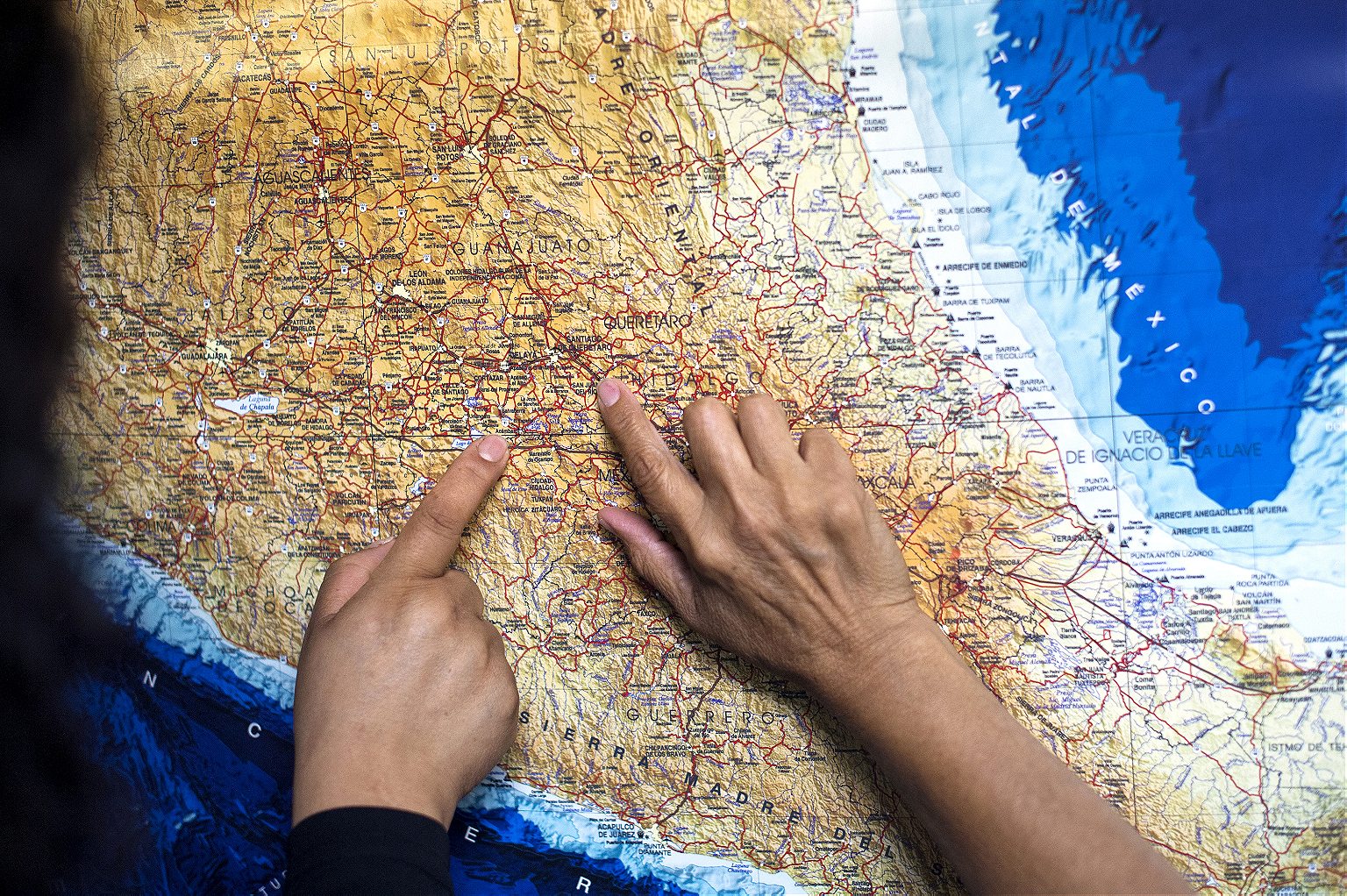
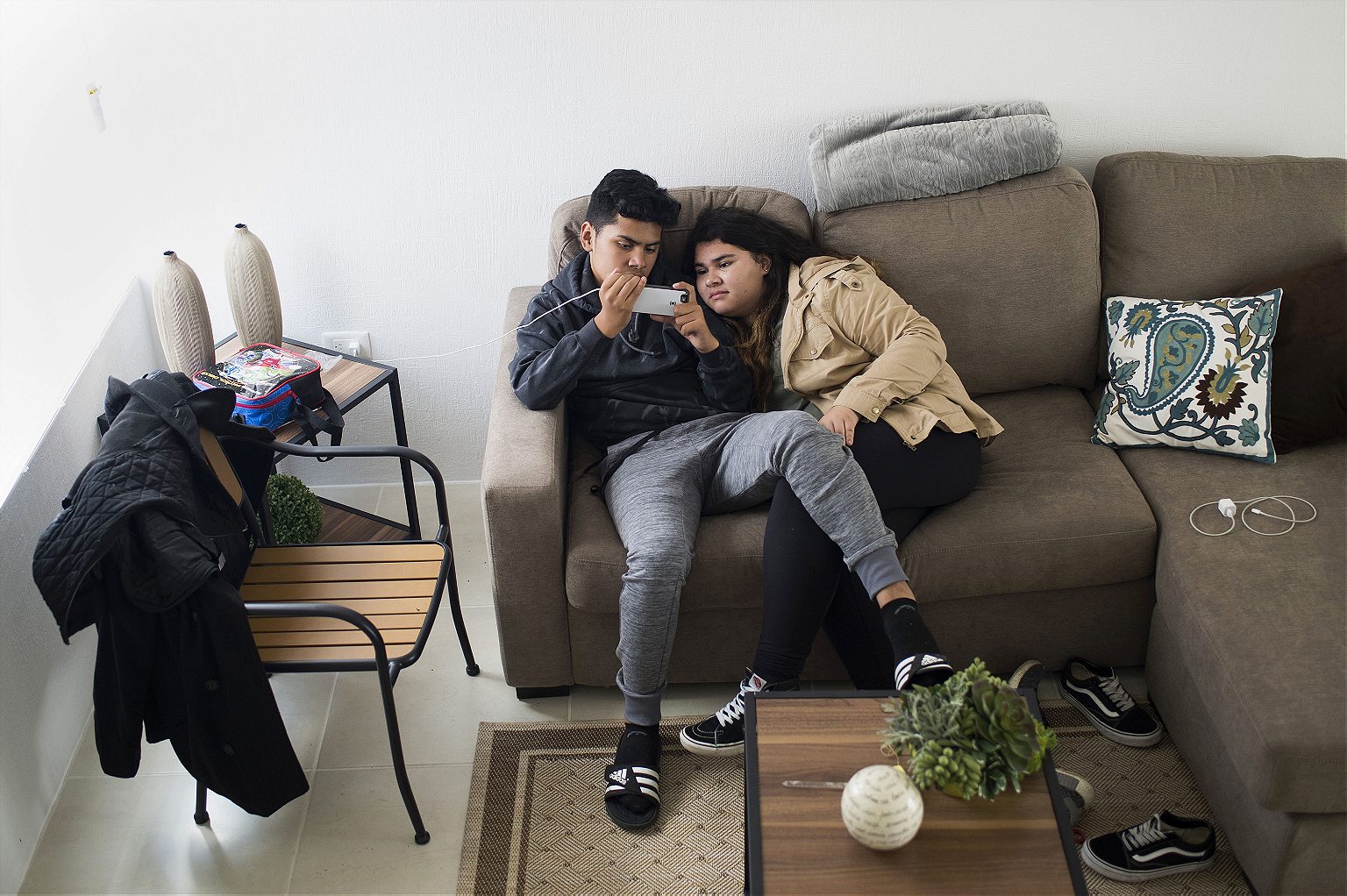
R&K: Do they want to come back?
RW: They still talk about coming back and living with the family they have here, or staying with their older sister. But there’s also a part of them that wants to be with their parents—they’re just young teenagers. Their parents want them to stay, too. It’s something that is not easily solved or even something they can easily talk about.
Bryan also grew up mostly without his father because his father was deported when he was very young. Now they’re rebuilding a relationship that they didn’t have for most of his life.
R&K: Has this project led you down any new avenues with your work that you previously didn’t seek out?
RW: I don’t think I would be doing this story if I hadn’t met Bautista and her family. I wouldn’t necessarily decide to travel to Mexico by myself and seek out a family in a similar situation. I think in some ways, my work is driven by the people that I meet and the people that I know.
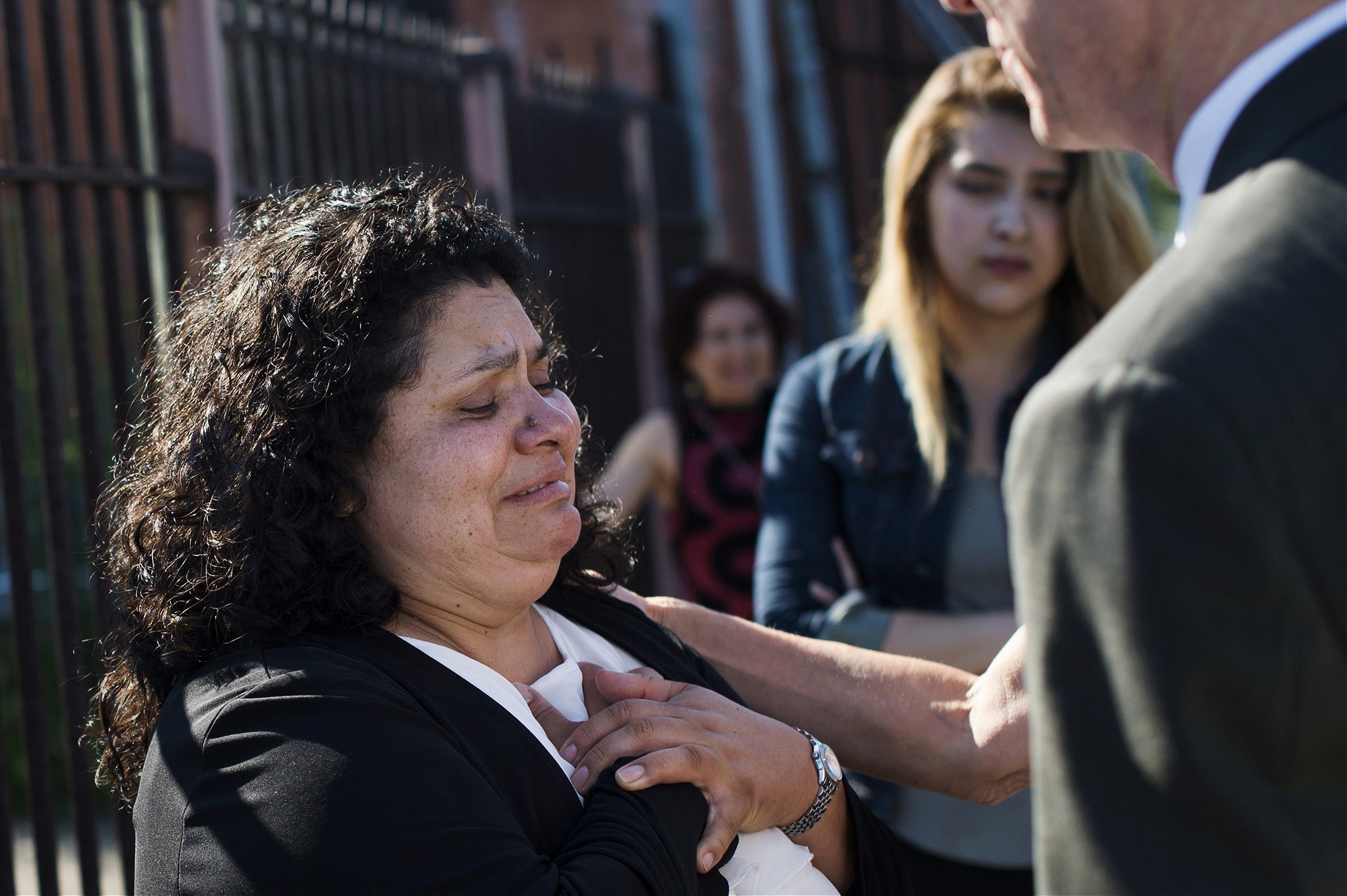
R&K: You’ve followed the family for a year now. How long do you plan to continue working on this?
RW: The Art Works grant helps, so I can keep working with this family and telling their story hopefully for a long time.
Pamela, the eldest daughter who still lives in Ann Arbor, was looking to apply for a pardon when she turns 21. She is 20 now. There are a lot of different reasons why this family may or may not end up back in the U.S. I hope to stick with them wherever they end up, follow their relationships, and show how this family is being affected in the long run by deportation. So, I hope it’s more than just a quick story.
R&K: What do you want people to take away from this?
RW: I hope that people can look at this family and understand and empathize with what they’re going through, and put a name and a face to issues like deportation that may otherwise just be a headline. I hope that looking at these photographs changes someone’s perspective or that anyone going through this particular situation right now could feel less alone.
